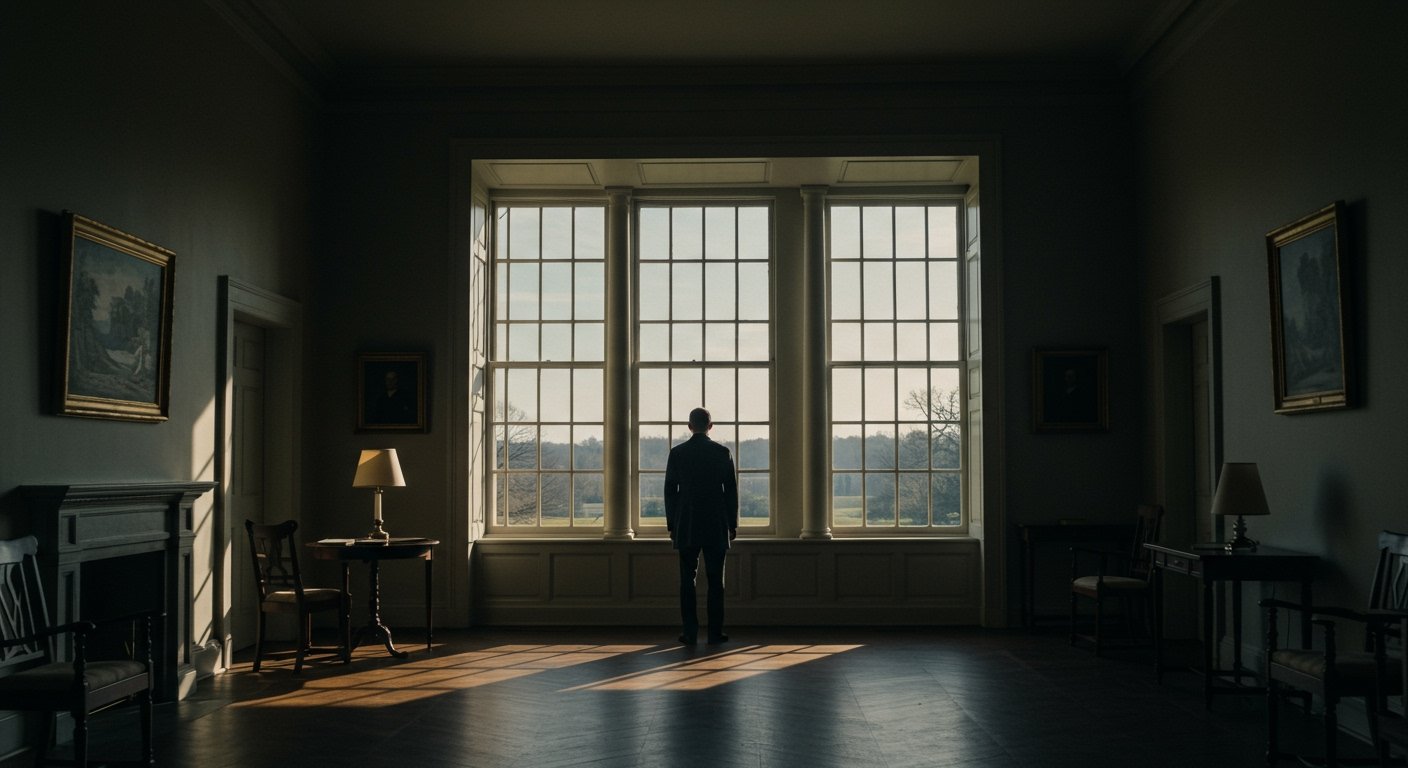In an era often characterized by political polarization and social fragmentation, the concept of civic culture – the norms, habits, and narratives that shape how Americans interact and confront shared challenges – has come under intense scrutiny. A thought-provoking article published by Citizen University on February 11, 2025, delves into the state of this vital societal fabric, proposing tangible ways to mend and strengthen it through conscious cultivation of healthier habits, trust, relationships, and respectful debate.
The piece contrasts a vibrant civic culture with its detrimental counterparts: despair, apathy, unchecked individualism, power hoarding, and divisive narratives that erode collective identity and shared purpose. It posits that while politics and government are components, true civic culture extends far beyond the ballot box and legislative halls, encompassing everyday public behavior, local problem-solving, neighborly relations, and a collective sense of belonging.
Defining and Defending Civic Culture
Citizen University defines civic culture not as a rigid structure, but as the dynamic interplay of behaviors and beliefs that influence how citizens engage with each other and their communities. An unhealthy civic culture, the article argues, manifests as disengagement, mistrust, and an inability to address common issues effectively. Conversely, a healthy culture fosters participation, mutual support, and constructive dialogue, even amidst disagreement. The challenge, as highlighted on February 11, 2025, is to actively counter the forces that promote isolation and division.
Laboratories of Engagement: Initiatives in Action
The Citizen University article spotlights compelling examples of communities actively working to build a more robust civic culture from the ground up. One such initiative is found in Atlanta, focusing on the principles of Mutualism and Mutual Aid. This effort includes a novel “civic collaboratory,” a model specifically developed by Citizen University, which brings together a diverse cross-section of local leaders quarterly. Participants range from comedians and CEOs to academics and journalism organizations, demonstrating a commitment to bridging traditional divides.
The purpose of this collaboratory is explicitly about offering tangible help: time, connections, and even funding, towards community projects and initiatives. This reciprocal act of support fosters trust and builds relationships across sectors that might otherwise remain siloed. The article cites the positive experience of member Blake Stoner, whose participation underscores the efficacy of this model in creating practical networks of support and cooperation.
Simultaneously, in Akron, Ohio, efforts are underway to foster a pervasive culture of service. Here, volunteer initiatives are establishing norms of serving others as a fundamental aspect of community life. The article references the work of individuals like Kate, who organizes Saturday community connections. These regular gatherings are designed not just to accomplish specific tasks but, crucially, to enable engagement across differences, building understanding and shared purpose through collective action.
These examples from Atlanta and Akron illustrate the core argument that cultivating a healthy civic culture is an active, ongoing process requiring intentional effort at the local level. They move beyond abstract discussions to concrete practices that build social capital and reinforce a sense of shared responsibility among residents.
Paving the Way Forward
The article concludes by suggesting pathways to broaden and deepen civic engagement. It emphasizes the importance of identifying and removing obstacles that prevent individuals from participating in community life and service. This could involve anything from practical barriers like lack of childcare or transportation to systemic issues that create feelings of exclusion or powerlessness.
Furthermore, the piece advocates for the strategic utilization of underused community resources – be they physical spaces, dormant skills within the population, or overlooked social networks. By activating these assets, communities can create more opportunities for connection, collaboration, and collective problem-solving, thereby strengthening the very foundation of their civic culture.
The findings presented by Citizen University on February 11, 2025, offer a hopeful perspective. They suggest that despite national challenges, the building blocks of a healthier, more engaged civic culture are being actively assembled in communities across the United States, one relationship, one act of service, and one respectful debate at a time. The path forward, it seems, lies not just in grand political gestures, but in the everyday habits and interactions that define collective life.












Shining crown online casino əyləncəsi 24/7 mövcuddur.
Shining crown buy bonus funksiyası əlavə qazanclar verir.
Shining crown bell link demo yeni oyunçular üçün idealdır. Shining crown free play hər kəs üçün əlçatan seçimdir. Shining Crown oyunu klassik meyvə simvollarını əhatə edir.
Shining crown joc gratis təcrübə qazandırır.
Shining crown free slot real uduş öncəsi sınamağa imkan verir.
Sayta birbaşa keçid https://shining-crown.com.az/.
Shining crown big win uduşları oyunçular üçün motivasiya rolunu oynayır.
Shining crown demo oyna risksiz məşqdir.
Sunny coin 2 hold the spin slot demo versiyası çox rahatdır. Sunny coin: hold the spin slot bonusları çox maraqlıdır.
Sunny coin 2 hold the spin slot free play rahat seçimdir. Sunny Coin 2: Hold The Spin slotunda bonus raundları maraqlıdır.
Demo versiya üçün keçid http://sunny-coin.com.az.
Sunny Coin Hold The Spin oyunu həm pulsuz, həm də real pul üçündür. Sunny Coin Hold The Spin oyunu sürətli və maraqlıdır. Sunny coin 2 hold the spin slot istifadəçilərin sevimlisidir.
Sunny Coin Hold The Spin slot oyunu sürprizlərlə doludur. Sunny coin: hold the spin slot təcrübəsi həyəcanlıdır.
Formula 1 2025 təqvimini öyrənmək istəyənlər üçün faydalı məlumat. Formula 1 canlı izləmə şifresiz seçimləri təqdim olunur.
Ən son xəbərləri izləmək üçün baxın ➡ formula 1.
Formula 1 schedule daim yenilənir və asan izlənilir. Formula 1 film və sənədli layihələrinə baxmaq mümkündür.
Formula 1 2025 calendar üzrə bütün yarış tarixləri. Formula 1 2025 Baku mərhələsi barədə ən son xəbərlər. Formula 1 cars dizaynı və yenilikləri. Formula 1 azerbaycanda keçirilən yarışlar barədə maraqlı faktlar.
Модрич сыяктуу туруктуу оюн көрсөтүү абдан кыйын.Лука Модрич Реалдын жүрөгү болгон. Модрич — чыныгы футбол интеллекти. Канча жашта болсо да, Модрич формасын сактап турат. Оюн анализдери жана эксперттик пикирлер жыйнагы: https://luka-modric-kg.com/. Анын ысымы футбол тарыхында калат.
Футбол сүйүүчүлөрү үчүн Модрич — Реалдын жүрөгү. Анын автобиографиясы мотивация берет. Модрич акчадан мурда сыймыкты ойлойт. Лука Модрич келечекте кайсы клубга өтөт деп ойлойсуң?
Эгер UFC жаңылыктарын кыска, так жана ыңгайлуу форматта издеп жүрсөңүз, бул жер туура.
Пресс-конференция жана тарсылдатуу жыйынтык видеолору бет ачылгандан кийин эле жеткиликтүү. ислам махачев статистика Тейкдаун, контрол жана сабмишн көрсөткүчтөрү визуалдуу берилет. Жөнөкөй тилде түшүндүрмө бар. Ислам Махачев — Арман Царукян реваншы мүмкүнбү, эксперттик пикирлерди жыйнадык. Мүмкүн болгон апсеттер жана беттеш темпи боюнча аналитикалык бөлүм бар. Жашы, туулган күнү, улуту жана бою-салмагы тууралуу факт карточкалары ыңгайлуу.
Дастин Порье, Чарльз Оливейра, Волкановски сыяктуу чоң аттар менен салыштыруулар бар. Коэффициенттер жана линиялар боюнча кыска гид: ким фаворит, ким андердог — объективдүү маалымат. Фан-арт жана мыйзамдуу колдонула турган медиалар үчүн кеңештер бар. Сырттагы булактарга кеткенде коопсуздук эскертмелери жана расмий шилтемелер колдонулат.
Найкращі казино України постійно оновлюють слоти та акції. Рейтинг казино Україна допомагає уникнути шахрайських сайтів.
Кращі онлайн казино України мають ліцензію КРАІЛ. Шукаєте надійну «вітрину» з відгуками та перевіреними ліцензіями? Скористайтесь ліцензійні казино україни. Казино з миттєвим виводом дозволяють отримати виграш без очікування.
Онлайн казино в Україні працюють лише з перевіреними провайдерами. Українське казино підтримує популярні платіжні сервіси. Онлайн казино Україна пропонує бонуси за перший депозит. Легальні онлайн казино України підтримують гривню. Українські онлайн казино з ліцензією — це безпечний вибір.